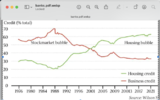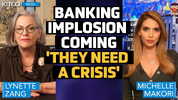Yeah ok, got that part. What I heard though was that if, in the event of a possible failure, the depositors would see a portion of their savings converted to some kind of bond....
You might be confusing what happens with depositor money versus what happens with hybrid issues.








